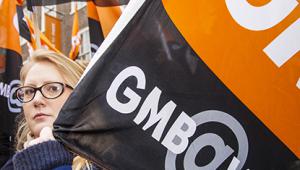By Richard Johnstone | 27 February 2014
A strike ballot of council workers over the decision by the Local Government Association to delay an annual pay offer until May now looks ‘inevitable’, trade unions warned today.
The GMB, Unison and Unite announced they were moving ahead with plans for industrial action after employers told unions earlier this month the pay offer for 2014/15 would be delayed until a government decision was made on an increase to the National Minimum Wage.
Yesterday, the Low Pay Commission recommended to government that the rate should rise by 3% from £6.31 to £6.50 an hour from October, the first real-terms increase in at least five years.
In a statement today, the unions – which form the staff side of the National Joint Council for local government – said they rejected any notion of ‘pegging’ local government pay rates to the National Minimum Wage. The LGA had said the delay was necessary to ensure the offer reflected any increase.
Unions also said indications from the LGA that a 1% offer had been authorised would not be satisfactory to members. They concluded industrial action now looked inevitable.
Brian Strutton, GMB national secretary for public services, said: ‘The unanimous view of the full local government trade union side is very clear. The idea that one and a half million council workers should have to sacrifice part of a paltry 1% pay pot to meet their employers' statutory obligation to pay the national minimum wage is unacceptable.
‘GMB and the other unions are further incensed that the employers say the pay pot is not negotiable. We have no choice but to begin preparations for consulting our members on industrial action.’
Today’s announcement by the Low Pay Commission came after it concluded the real value of the minimum wage has fallen during the economic slowdown – even though it had risen faster than other wages rates– because of higher inflation.
Commission chair David Norgrove said: ‘We have had to balance the risk of recommending more than business and the economy can afford, bearing in mind the pressures on low-paying sectors and small firms, against the risk of doing too little to start to restore the real value of the earnings of the lowest paid.
‘Provided the economy continues to improve we expect to recommend further progressive real increases in the value of the minimum wage, restoring and then surpassing its previous highest level, so that 2014 will mark the start of a new phase – of bigger increases than in recent years – in the work of the commission.’
The government is expected to announce whether it will accept the recommendation during the next few weeks.





















